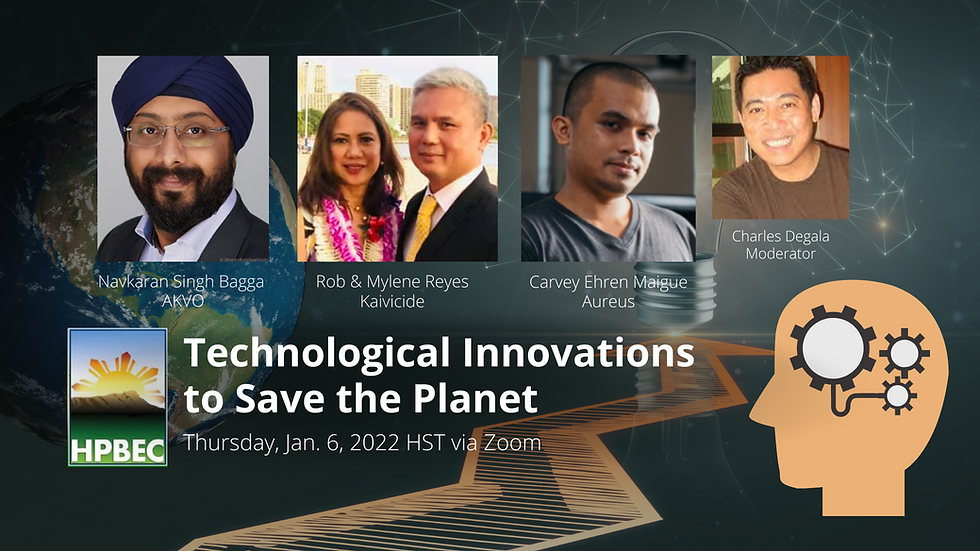Keynote Speaker: Justice Antonio Carpio
- HPBEC

- Sep 21, 2021
- 2 min read
Retired Justice Antonio T. Carpio will deliver the opening plenary address at the Aloha & Mabuhay Conference. He will speak on the importance of cultivating maritime domain awareness for the effective management of the security, safety, economy, and environment of the Philippines and Hawai’i.
Justice Carpio helped formulate the case that the Philippines brought against China at the International Court of Justice in 2013, which ruled mostly in the Philippines’ favor in 2016. He is a strong advocate for the use of international law as the best and peacefulmeans to protect and enforce one’s rights -- in the proper forum, and in a timely manner.

Antonio Carpio was one of the youngest associate justices to the Supreme Court when he was appointed at age 52 in 2001. Shortly after his appointment, he launched for the judiciary the Supreme Court e-library, the first full-text searchable and retrievable on-line law library in the Philippines and among the first in Asia. He penned 935 decisions, 79 dissenting opinions, 30 concurring opinions, 13 separate opinions and 4 concurring and dissenting opinions, leaving no backlog in his docket, a feat rarely attained by a Supreme Court magistrate. For his “distinguished and exemplary service” to the Republic, Justice Carpio was awarded in 1998 the Presidential Medal of Merit by then President Fidel Ramos, one of many awards he would receive.
He obtained his law degree from the University of the Philippines where he graduated valedictorian and cum laude in 1975. He earned his undergraduate degree in Economics from Ateneo de Manila University in 1970. After law school, he founded the Carpio Villaraza & Cruz Law firm and taught at the U.P. College of Law until he was appointed Chief Presidential Legal Counsel, with cabinet rank by then President Fidel Ramos. As such he worked for major reforms in telecommunications, shipping, civil aviation, and insurance industries. He was also a member of the Board of Regents of the University of the Philippines from 1993 to 1998. He has lectured extensively on the West Philippine Sea issue and published his research in an e-book. He retired from the Supreme Court on October 26, 2019 upon reaching the compulsory retirement age of 70.




Comments